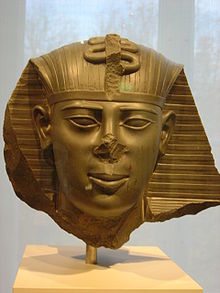Bury
Wells, Joseph Warren *
Joseph Warren Wells is an American computer software expert specialising in Internet  security. He has also been engaged in over 30 years of Greek and 20 years of Coptic studies. He is probably best known for his Sahidica trilogy which deals with the New Testament in the Sahidic dialect of pre-Islamic Coptic(a).
security. He has also been engaged in over 30 years of Greek and 20 years of Coptic studies. He is probably best known for his Sahidica trilogy which deals with the New Testament in the Sahidic dialect of pre-Islamic Coptic(a).
Wells has also contributed to Atlantology with a number of useful works that includes a concordance of the Atlantis texts of both the Bury and Jowett translations, which can be downloaded as an e-book(b) for less than €3. A free download of just the Jowett translation plus a concordance is also available(c).
Wells has also written about sexual elements contained in the Atlantis narrative.
2011 saw Wells add to his valuable contribution to Atlantis research with the publication of Atlantis in Context[787]and a slightly condensed edition of it, The Book on Atlantis[783]. In them, he offers a new translation of the Atlantis passages in Plato’s Critias and Timaeus and more importantly engages in a forensic examination of Timaeus 24e-25d, which contains some of the most debated elements in the narrative. However, I was disappointed that he did not expand on Plato’s use of words for various bodies of water and in particular the reference to the ‘ocean’ being navigable in those days, inferring that it was no longer so, which begs the question of how this could possibly refer to what we know as the Atlantic Ocean. That aside, Atlantis in Context is an important addition to Atlantis studies.
A 2008 version of his valuable Atlantis work entitled Plato’s Atlantis is still available online(f). This edition also includes a useful concordance to Jowett’s translation of the Atlantis narrative.
On an older website of his, Wells offered parallel versions of a section of Timaeus by Jowett, Bury, Lee and his own(d).
Wells has also brought together the Greek text as well as seven translations of the most quoted Atlantis passages in Timaeus from 24d to 25d, now available on the AtlantisOnline website(e).
Despite all that, Wells does not appear to support the reality of Atlantis!
(a) https://www.logos.com/product/5965/sahidic-coptic-collection
(b) https://www.lulu.com/product/file-download/a-concordance-for-platos-atlantis-burys-and-jowetts-translations/779346?productTrackingContext=product_view/more_by_author/right/2 (Link broken)
(d) https://web.archive.org/web/20070217220641/https://www.greekatlantis.com:80/timaeus4.html
(e) https://atlantisonline.smfforfree2.com/index.php/topic,3584.0.html
(f) Plato’s Atlantis | Atlantis FYI (link broken) *
Amasis
Amasis II, was the Greek name of Ahmose who reigned from 570-526 BC. Amasis is given by Plato as the  name of the Egyptian pharaoh at the time of Solon’s visit to Sais. However, Phyllis Young Forsyth[266.38] protests that Plato did not claim that Amasis was on the throne at the time of Solon’s visit, but merely identified Sais as the home of Amasis. The English translations of Tim.21e by Bury, Jowett and Lee are compatible with this, as is the German translation of Plato’s text by Franz Susemihl(a). John Michael Greer[0345], among others, supports this view.
name of the Egyptian pharaoh at the time of Solon’s visit to Sais. However, Phyllis Young Forsyth[266.38] protests that Plato did not claim that Amasis was on the throne at the time of Solon’s visit, but merely identified Sais as the home of Amasis. The English translations of Tim.21e by Bury, Jowett and Lee are compatible with this, as is the German translation of Plato’s text by Franz Susemihl(a). John Michael Greer[0345], among others, supports this view.
Firm historical information for this period is often scanty and sometimes contradictory. However, it is thought that Solon left Athens for a number of years and some of that period may have overlapped with part of Amasis’ reign. Herodotus is our principal source of information regarding Amasis and he clearly mentions (Bk.1.30) that Solon was at the court of Amasis. Zhirov quotes the views of V.S. Struve, who believed that Herodotus’ 3rd century BC dates were out by 25 years.
Ivan Linforth strongly disputes[041.300] the idea of Solon meeting Amasis as “chronologically quite improbable”. He claims that Solon (c.630-560 BC) had returned to Athens before the reign of Amasis. John Michael Greer[0345.15], not very convincingly, attempts to counter this idea with the suggestion that at the time of Solon’s visit, Amasis had not yet ascended the throne.
A more recent refutation of the claim that Plato’s reference to Amasis is an anachronism is offered by Diego Ratti(b).
(a) https://web.archive.org/web/20180901011839/https://atlantis-schoppe.de/susemihl.pdf
(b) Solon and anachronism issue (archive.org)
Concordance
A Concordance to the English language translations by R.G. Bury and Benjamin Jowett of the Atlantis sections of Plato’s Critias and Timaeus has been produced[702] by Joseph Warren Wells. It was available both in hard copy and as an inexpensive Internet download(a) but does not appear to be currently available. Wells has published separately details of the sources he employed in compiling this work(e).
A 2008 version of Wells’ valuable Atlantis work, entitled Plato’s Atlantis, is still available online(f). This edition also includes a useful concordance to Jowett’s translation of the Atlantis narrative.
Wells is also the author of a short paper on the sexual undertones in the Atlantis narrative(d).
Other online concordances to Timaeus and Critias are also available(b)(c).
(a) https://stores.lulu.com/josephwells (Link broken)
(b) https://web.archive.org/web/20171012030448/https://www.doc.ic.ac.uk/~rac101/concord/texts/timaeus/
(c) https://web.archive.org/web/20171028204206/https://www.doc.ic.ac.uk/~rac101/concord/texts/critias/
(d) https://web.archive.org/web/20110817115516/http://greekatlantis.warpco.com/Sexcentric.html
(e) https://groups.yahoo.com/group/AtCon/message/2 (link broken)
(f) Plato’s Atlantis | Atlantis FYI (link broken)
